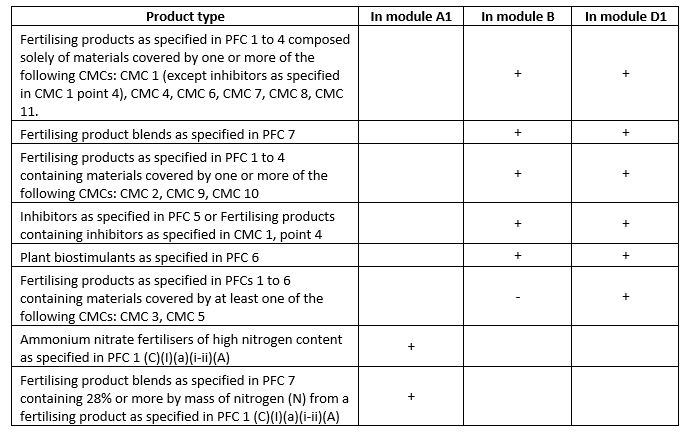Certification of EU fertilising products - our competences
From December 4th, 2021, PCBC S.A. is a notified body with the identification number 1434, assigned by the European Commission for the conformity assessment of EU fertilising products in accordance with Regulation (EU) 2019/1009 for module B – EU-type examination and module D1 – quality assurance of the production process.
From March 6th, 2023 PCBC S.A. can also conduct inspection in module A1 – internal production control plus supervised product testing in accordance with the scope of accreditation issued for a inspection body No. AK 041 under PN-EN ISO/IEC 17020:2012.
As part of our competences, we evaluate the following products:



